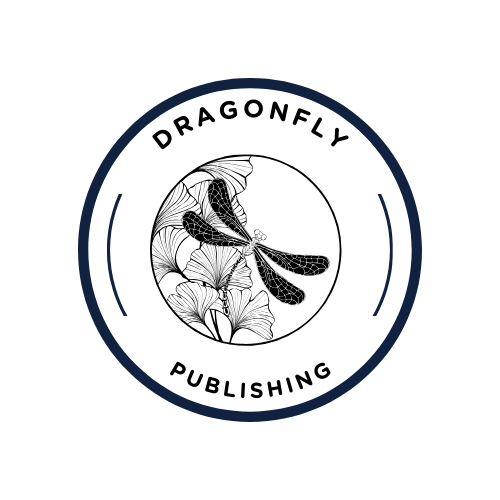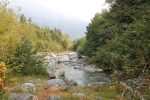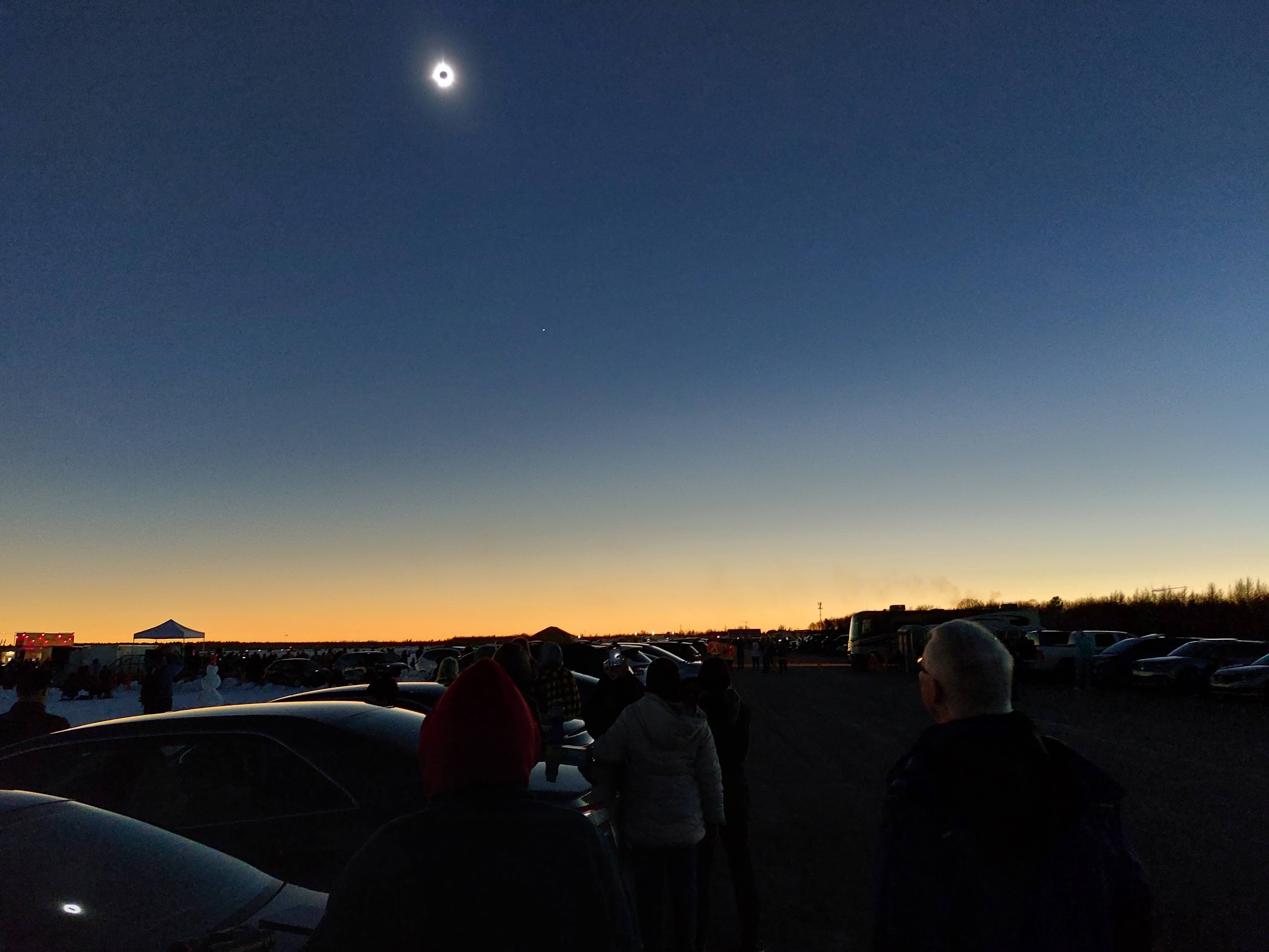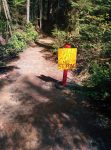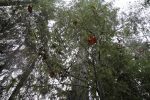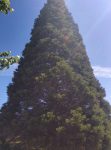Anger is making the news every day. It comes in different forms: shootings and other violence, social media vitriol, and more. After yesterday’s shooting at the GOP baseball game, the Washington Post remarks today that the shooter, James T. Hodgkinson, was “always angry”. I think anger is a weird thing. It’s natural for every single person in the world, sometimes. It’s part of our make-up. But it’s not healthy to be angry all the time, to be resentful and jealous, to be so angry that one is constantly picking fights or using violence or defaming others on social media or just letting it build inside until someone is hurt, physically or emotionally.
I’ve seen my share of angry people. And I think they know that if they push my buttons too many times, I tell them exactly what I think of their behavior and then just ignore them. I kind of inherited that bluntness from my dad, but it takes a while to get me to that point, and even deep down it doesn’t mean I don’t care–it just means I am too busy to engage in that kind of behavior.
I feel rising above anger while still standing ground is a good thing to practice. It’s my way of not carrying around resentment or anger. It’s my way of concentrating on the rest of human-ness–which includes being empathetic, caring, peaceful, helpful, kind, interested, hopeful, happy, comical, and even sometimes sad. I’ve seen how anger and arrogance have destroyed what could be legit, goal-reaching discussions. I’ve seen it ruin friendships, families, and other circles, not necessarily in my life but others. Everybody and their mother (okay, not everybody) is lashing out these days, it seems. Maybe it’s not always in person. Maybe it’s online. I don’t get it.
I was talking recently with John Atcheson, who is the subject of my latest spotlight on climate change authors over on the main eco-fiction site, and he said something that really made me think:
I think fiction still has an important role to play in defining the zeitgeist of an era. What I find fascinating is the plethora of dystopian works in film and fiction. I believe they are both a reflection of the times we’re in, and a creator of them. By which I mean, there’s a vague sense of dread, even among those who don’t acknowledge climate change, and dystopian stories allow them to grapple with their fear. Actually, I think the dread goes beyond climate change. The institutions and the disciplines we used to rely on are in disrepute so there’s an inchoate sense of doom … hence the other phenomena in film, and in graphic novels, The Super Hero.
He touched upon a feeling that I have had in my own life as I evolve. “The dread goes beyond climate change. The institutions and the disciplines we used to rely on are in disrepute so there’s an inchoate sense of doom.” This statement is so true. I feel that the country I grew up in represents, with their voting in of Trump, a bigger malady–something Atcheson refers to on the back cover of a new nonfiction he has called WTF America? And it sure does not represent the America I grew up in.
I feel really that we are at a crucial moment in history, and have been for some time, and climate change (as well as other growing problems: racism, inequality, and so many other issues) has suffocated us, emotionally paralyzed us not only with the feelings of powerlessness but guilt. And the ground we stand on is unsteady. The air we breathe is questionable. The water we drink and swim in is polluted, dying, and full of plastics. The ecosystem of Earth is out of whack. Species are going extinct at a far faster rate than ever before. People are dying and suffering. There is bloodshed due to these issues. It’s enough to get angry about, that’s for sure–but to arm the crazy anger, to fuel the insistent anger, to act out on the “easy” anger is wrong. When I heard the news of the baseball game shooting yesterday, my heart sunk, but then smiled when there was a short period of reconciliation, the only true bipartisan, fleeting moment of common sense–that short moment where people acted human and cried or said something nice or offered prayers or sorrow even to their political enemies. You don’t see that anymore, for the most part. It used to be more common. Too bad such terrible violence brought it on, but is as usual the case. Trump’s America is not the America of trust or stability, however.

This unstable ground we stand on today is a reflection of my own life post-Dad’s death in 2009. I’m not saying he was some perfect guy. He was human. But when he was alive, the house he built was built on rock, not sand. I feel a lump growing in my throat when I realize the security I once felt, back when he was healthy and my active Dad–shooting Frisbee or hoops with us, teaching us chess, having good-hearted and skill-building debates at the supper table, his making us kids feel safe, his unconditional love for people, didn’t matter who they were or where they came from or the color of their skin or what they believed. The only time I heard him speak ill of anyone was when he warned me about the fundamentalists, the haters–the angry people. I feel fortunate to have a still-living mom and a husband who continue to lend me some aspect of feeling secure in this world–but there is a kind of frozen outlook when I look at the world. And I don’t even have to go anywhere to see it…just log into social media or read the news.
The house my dad built was also one of being upper-middle-class, and I have long felt more and more anti-consumerist as I grow older. I think part of this is the same kind of attitude my parents had. They didn’t like to buy what they didn’t need–nevertheless, our lifestyle was, among with most others in America, the top polluting ones in the world in the sense we had heat, air-conditioning, drove a car, used electronics, etc. I think my parents were concerned about the environment. I do. But we had far more than others, and having these things contributed to the problems we see today after decades of consumerism and convenience have altered the planet–because the manufacturing of all these things used fossil fuels, trees, fresh water, and every other natural resource there is, and in doing so threw these disposables right back out into land dumps, into the ocean, and so forth. What we didn’t think out then, what maybe we didn’t totally recognize then (even though I always remember recycling) was that we became the problem of today.
The comfort of the house, however, went along with the close-knit family we had. The house always had antiques from grandparents, which lent to its cozy and warm ambience as well as a sense of continuity from those before us, whom we remember passing away from this life. The house was accented with hardwood and trim and back decks, beyond which were trees and good light coming from above. Walls had old paintings with frames my grandfather had made. But what made the home stable of course, wasn’t really so much the physical material it was built on, or its adornments, but the love and security my parents built within the house. I’m not saying that the love isn’t there anymore–only that house is no longer, for my dad is no longer and they had to sell it when he was alive because he could no longer climb stairs. And in the years since he died, paralleling it, the world has manifested this evolving malady, as Atcheson put it. And it just feels kind of frightening to me. The disrepute America has grown into makes us lose trust, which is one of the main building blocks of life with others.
Sometimes before running, I feel this kind of paralysis. What if I just lay here. What if I entered some fugue state. What if I just never moved again. Of course, I don’t think those things seriously, and I go get up and run eventually. But there is a certain kind of weirdness involved that perhaps some people might feel who do not jump to anger. It’s like a shell, some kind of invisible barrier to separate us from the angry, ruinous world. Then a new day happens and we awake groggily and open our eyes to the same fight, not an angry fight, really. A fight because we care about the world, even though, as Atcheson so rightly put it, a world that has devolved into a state of disrepair, inviting this inchoate sense of doom.
I feel it. I feel it more when I see an overabundance of anger. Is this what we have been become?
Now I know in my heart it isn’t all true. With every angry person, I also see a person who is trying to make the world better. But the angry person doesn’t have to work hard at it, do they. The person who puts anger aside in order to good things for the planet, or for someone else, actually spends a lot of energy doing so–and sometimes with less effect.
I have to admit that running or hiking or just being outside generates a lively shell against the world, and that’s why I love it. When I read John Atcheson’s bear story again today, I at once felt home. A home I felt as stable as the house my father built. The start of it is:
OK, first let’s gather around a campfire, somewhere in one of the most remote areas left in North America. Beyond the thin, fragile fringe of light afforded by the fire, is a vast forest, wrapped in a darkness that is unimaginable to those who have passed their lives in cities and towns. The trees hiss in the wind, obscuring any sounds, leaving us sightless and senseless. We have our backs to the unknown, and the unknowable. Quiet now. Did you hear that … Just a branch crashing to the forest floor says one grizzled old guy hopefully. The circle pulls in tighter.
Yes, there could be anything out there and we wouldn’t know it until it was upon us. In this fear inducing crucible, what else is there to do but swap stories of dangerous times we’ve faced – tales of wolves, and wolverines, pumas and polecats, and of course, Grizzly.
Reading this brings on some sort of innate memory or sense of home. It is comforting. He’s talking about northern BC. I have seen grizzlies bears up there myself, once when rafting the Atnarko River with others and once at the side of the road while I was with my husband, and our moms, safely inside a car. I have known, however, the big old nature world that feels like home. “…a vast forest, wrapped in darkness that is unimaginable to those who have passed their lives in cities and towns. The trees hiss in the wind, obscuring any sounds, leaving us sightless and senseless. We have our backs tot he unknown and the unknowable…”
This feeling, my friends, is one I must recommend. No, I do not want anyone to get mauled by a bear. But to get outside in nature, whatever nature we have left, is going home. Even the saddest people find remedy in nature. Sylvia Plath, in The Bell Jar, said, “I felt my lungs inflate with the onrush of scenery—air, mountains, trees, people. I thought, ‘This is what it is to be happy.'” In her troubling times, Anne Frank wrote, “The best remedy for those who are afraid, lonely or unhappy is to go outside, somewhere where they can be quite alone with the heavens, nature and God…And I firmly believe that nature brings solace in all troubles.” When I think of the de-paralyzing action of running, I think of Jack London’s Call of the Wild: “He was mastered by the sheer surging of life, the tidal wave of being, the perfect joy of each separate muscle, joint, and sinew in that it was everything that was not death, that it was aglow and rampant, expressing itself in movement, flying exultantly under the stars.”
John Muir said that the mountains are calling, and he must go. And he said, of National Parks, which are threatened today, “Thousands of tired, nerve-shaken, over-civilized people are beginning to find out that going to the mountains is going home; that wildness is a necessity.”
I don’t care if I come off strange or weird, I know that in nature, there is peace and a feeling of belonging. It’s my home. It’s our home. In our effort to move away from it and culture ourselves, some things have been beautiful: music, art, and even some technology. But somewhere along the way, we just went too far away, and we are now suffering from it–from our cultural pursuits of fame, self-aggrandizing lifestyles, materialism, power, greed–why all the things the old lessons warned of–we found new ways to build walls that not only disconnected us from our world but even from neighbors and people around us.
When I surround myself on all sides with fresh air, rushing rivers, tall rainforest trees, and I move with it, through it, there is only happiness and a final sense of belonging to something real. There is no anger.
The featured image is of a small creek we found while hiking near Bella Coola in 2014.
